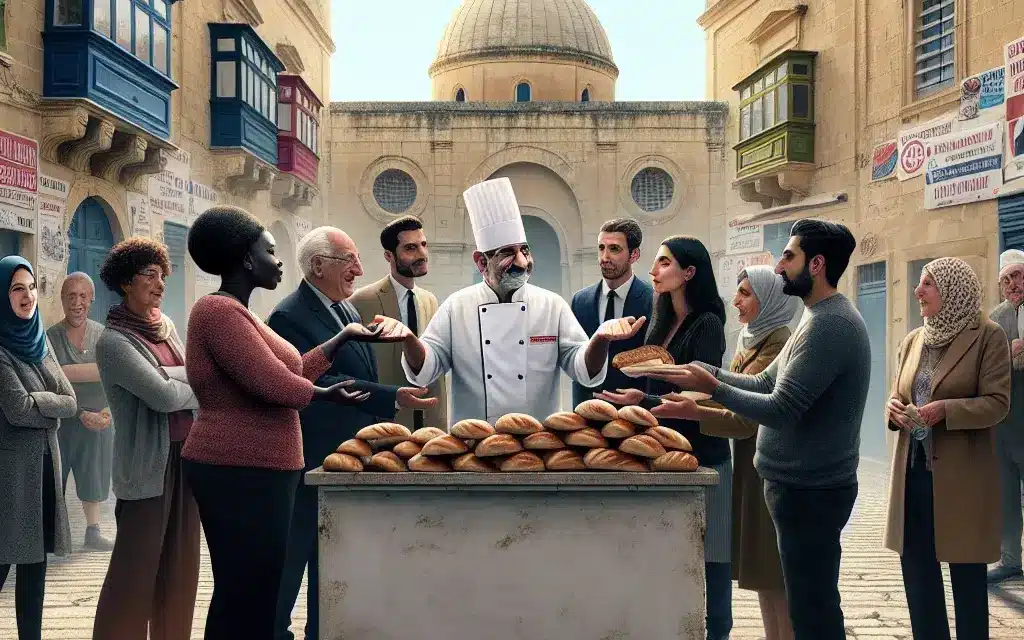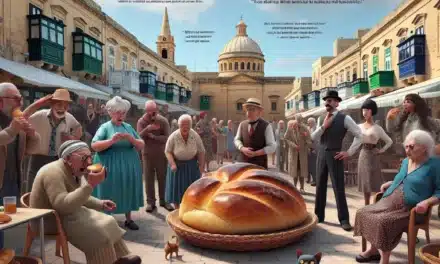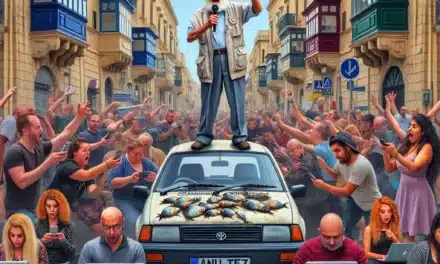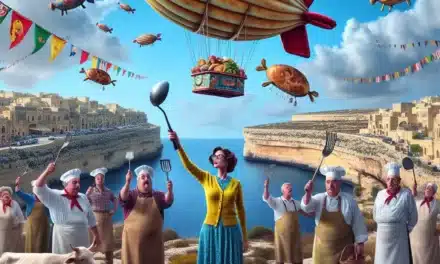The Case of the Vanishing Votaries: Mdina’s Mysterious Referendum
A Quirk in the Walled City
It was another sun-drenched day in Mdina, the silent city perched atop its bastion like a sphinx in the sun. The streets were abuzz, not with the usual chatter of tourists marveling at the Baroque architecture, but with the skittering of Maltese matriarchs and whispers over a referendum that was as unexpected as finding snow in Gozo.
“Uwejja, you heard about it?” asked Renato, a mustachioed, flat cap-wearing chap who doubled as the local ħobż biż-żejt connoisseur and unofficial town crier. “They’re going to have a vote, mela, about legalizing abortion of all things! Right here, in our little Mdina.”
A Timely Twist
As the community grappled with this revelation, the President of the Maltese Islands, a venerable woman known for her candor and amicable nature, Carmena Spiteri Debono, announced to a flock of flustered flamingos that had inexplicably settled in St. George’s Square, “One day, it’ll come, this change,” she proclaimed.
Her words fluttered across social media like a herd of wayward goats through the streets of Valletta, sparking heated debates from every corner of the island nation.
The Ballot Ballet
Misinformation about the referendum abounded, and it seemed like the issue would divide the city until Rosabella, a sharp-tongued local psychic known for her tarot readings and fenkata feasts, announced, “I foresee the vote disappearing into thin air, like last year’s festa fireworks!”
And disappear it did. The morning of the referendum, the ballots had gone, vanished, like the taste of a pastizz from a dieter’s dreams. Confusion reigned as every person in Mdina swore they had not a clue, but Saviour, the island’s most forgetful pigeon fancier, suddenly exclaimed, “Ooopsie, they were in my loft. Thought they were for my birds to… um… practice their aim!”
“It’s a confusion worse confounded,” muttered the mayor, scratching his head beneath his trilby. “Do we postpone, or do pigeons now get to decide our policy?”
Unexpected Allies in the Vote Void
Damage control was in full effect, with prominent figures calling for calm. Meanwhile, Renato took matters into his own chef-capped head, rallying the ħobż biż-żejt aficionados and offering free sandwiches to anyone willing to discuss the matter civilly in the Pjazza. “Kollox better with a bit of tomato and tuna,” he said, nodding with an air of solemnity usually reserved for Imnarja festivities.
Strangely united by their love of the island’s staple sandwich, both pro and anti factions found common ground, remarking, “Real change doesn’t come from above, mela, but from talking over a good ħobż biż-żejt.”
Conclusion: The Feasting Finale
As night fell over Mdina, with its lamp-lit limestone walls casting a glow eerily similar to that of the Hal Saflieni Hypogeum, citizens found themselves less in a feud and more in a fiesta. And somewhere, between a bite and a debate, they realized that maybe Malta’s way of tackling fence-mending wasn’t through the head-on confrontation of referendums but through the unity found in the simple pleasures of daily life and good food.
Carmena Spiteri Debono, looking out over her beloved archipelago, smiled a knowing smile. “One day might not be today, but then again, who can say? For now, let them eat bread—ħobż.”
True to Maltese style, the Times of Mela reported the next morning not on the lost referendum but on Renato’s newfound fame as the “Peacemaker Purveyor of the Ħobż Biż-Żejt.”
It seems in Malta, the more things change, the more they remain deliciously the same.







Recent Comments